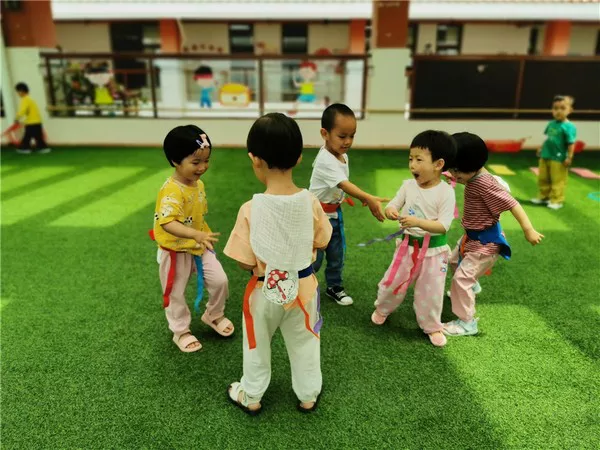Friendship relationships, often hailed as one of the most profound and enriching connections in human life, play a pivotal role in shaping our experiences and well-being. The term “friendship relationship” encompasses a spectrum of connections that transcend mere acquaintanceship, delving into the realms of emotional support, shared experiences, and genuine understanding.
Defining Friendship Relationships
At its core, a friendship relationship is a voluntary bond formed between individuals based on mutual affection, trust, and common interests. Unlike familial or romantic connections, friendships are uniquely characterized by a sense of choice and emotional camaraderie. These relationships can manifest in various forms, from childhood companionships to adult friendships that evolve through shared experiences and shared values.
The Dynamics of Friendship Relationships
The dynamics of friendship relationships are complex and fluid, evolving over time as individuals grow and navigate the challenges of life. Trust and loyalty are foundational elements that define the strength of these connections. Friendships often serve as a safe haven where individuals can express their true selves without fear of judgment, fostering an environment of authenticity and vulnerability.
Communication in Friendship Relationships
Effective communication is a cornerstone of any successful relationship, and friendship is no exception. The ability to express oneself openly and to actively listen to a friend’s thoughts and feelings is crucial in nurturing a healthy friendship relationship. Regular and meaningful communication strengthens the bond, creating a space where both parties feel heard, valued, and understood.
Shared Experiences and Memories
One of the defining aspects of friendship relationships is the creation of shared experiences and memories. Whether it’s celebrating triumphs, navigating challenges, or simply enjoying each other’s company, these shared moments contribute to the unique tapestry of the friendship. The memories forged in the context of a friendship relationship often become a source of joy, nostalgia, and a deep sense of connection.
Support and Empathy in Friendship Relationships
Friendship relationships provide a vital support system in the ebb and flow of life. True friends stand by each other during difficult times, offering emotional support, understanding, and empathy. The ability to share joys and sorrows with a trusted friend enhances emotional well-being and contributes to a sense of belonging. Empathy, the capacity to understand and share another person’s feelings, is a powerful glue that binds friends together.
The Role of Trust and Reliability
Trust is the bedrock of any lasting friendship relationship. The assurance that a friend can be relied upon fosters a sense of security and strengthens the bond between individuals. Trust is earned through consistent actions, reliability, and the demonstration of genuine care. In the absence of trust, the foundation of a friendship may crumble, highlighting its indispensability in the dynamics of these relationships.
Mutual Respect and Individual Growth
Respect for each other’s individuality is a key aspect of sustaining a friendship relationship. Recognizing and appreciating the unique qualities, beliefs, and aspirations of a friend contributes to a harmonious and enriching connection. Additionally, a healthy friendship supports individual growth, encouraging each friend to pursue personal development and goals, even if they lead in different directions.
Navigating Challenges in Friendship Relationships
Friendship relationships, like any other, are not immune to challenges. Disagreements, misunderstandings, and changing circumstances can strain even the strongest bonds. However, the resilience of a friendship often lies in the ability of individuals to navigate these challenges with open communication, understanding, and a commitment to resolving conflicts amicably.
The Impact of Technology on Friendship Relationships
In the contemporary landscape, technology has reshaped the way we form and maintain friendship relationships. Social media platforms, messaging apps, and virtual connections have expanded the possibilities of staying in touch across distances. While technology facilitates communication, it also raises questions about the depth and authenticity of virtual friendships compared to traditional, face-to-face connections.
Cultural and Cross-Cultural Perspectives
Friendship relationships are influenced by cultural norms and societal expectations. In some cultures, friendships are regarded as an extension of familial bonds, while in others, individualism may play a more significant role. Additionally, cross-cultural friendships offer unique insights into diverse perspectives, fostering mutual understanding and appreciation for different ways of life.
The Evolution of Friendship Relationships Over Time
As individuals progress through various stages of life, the nature of friendship relationships undergoes transformations. Childhood friendships, marked by innocence and shared adventures, may evolve into lifelong bonds, while adult friendships may be forged through common interests, work, or shared life experiences. Understanding the evolving nature of these relationships is crucial in navigating the changing dynamics of friendship over time.
Conclusion
In conclusion, friendship relationships represent a nuanced and multifaceted aspect of human connection, encompassing trust, communication, shared experiences, and mutual support. The meaning of friendship relationships goes beyond a casual association; they contribute significantly to emotional well-being, personal growth, and the richness of human experiences. Nurturing and valuing these connections can lead to a fulfilling and meaningful life, where the bonds of friendship become a source of strength, joy, and lasting companionship.
Related topics:






















